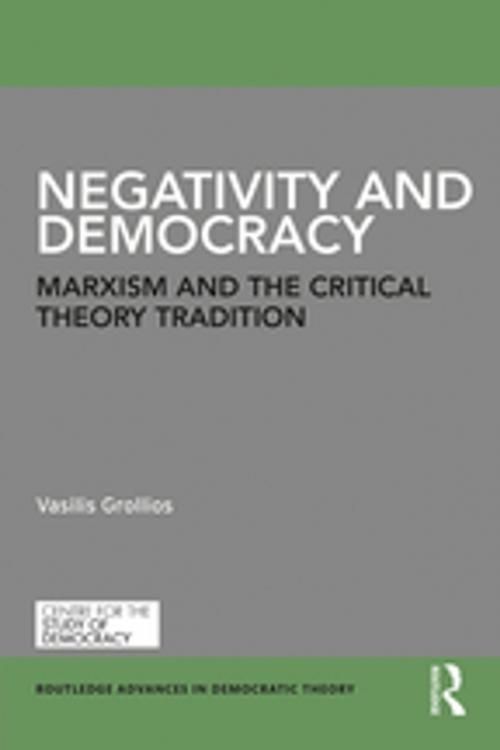Negativity and Democracy
Marxism and the Critical Theory Tradition
Nonfiction, Social & Cultural Studies, Political Science, Government, Democracy, Religion & Spirituality, Philosophy, Political| Author: | Vasilis Grollios | ISBN: | 9781317502210 |
| Publisher: | Taylor and Francis | Publication: | January 12, 2017 |
| Imprint: | Routledge | Language: | English |
| Author: | Vasilis Grollios |
| ISBN: | 9781317502210 |
| Publisher: | Taylor and Francis |
| Publication: | January 12, 2017 |
| Imprint: | Routledge |
| Language: | English |
The current political climate of uncompromising neoliberalism means that the need to study the logic of our culture—that is, the logic of the capitalist system—is compelling. Providing a rich philosophical analysis of democracy from a negative, non-identity, dialectical perspective, Vasilis Grollios encourages the reader not to think of democracy as a call for a more effective domination of the people or as a demand for the replacement of the elite that currently holds power. In doing so, he aspires to fill in a gap in the literature by offering an out-of-the-mainstream overview of the key concepts of totality, negativity, fetishization, contradiction, identity thinking, dialectics and corporeal materialism as they have been employed by the major thinkers of the critical theory tradition: Marx, Engels, Horkheimer, Lukacs, Adorno, Marcuse, Bloch and Holloway.
Their thinking had the following common keywords: contradiction, fetishism as a process and the notion of spell and all its implications. The author makes an innovative attempt to bring these concepts to light in terms of their practical relevance for contemporary democratic theory.
The current political climate of uncompromising neoliberalism means that the need to study the logic of our culture—that is, the logic of the capitalist system—is compelling. Providing a rich philosophical analysis of democracy from a negative, non-identity, dialectical perspective, Vasilis Grollios encourages the reader not to think of democracy as a call for a more effective domination of the people or as a demand for the replacement of the elite that currently holds power. In doing so, he aspires to fill in a gap in the literature by offering an out-of-the-mainstream overview of the key concepts of totality, negativity, fetishization, contradiction, identity thinking, dialectics and corporeal materialism as they have been employed by the major thinkers of the critical theory tradition: Marx, Engels, Horkheimer, Lukacs, Adorno, Marcuse, Bloch and Holloway.
Their thinking had the following common keywords: contradiction, fetishism as a process and the notion of spell and all its implications. The author makes an innovative attempt to bring these concepts to light in terms of their practical relevance for contemporary democratic theory.















